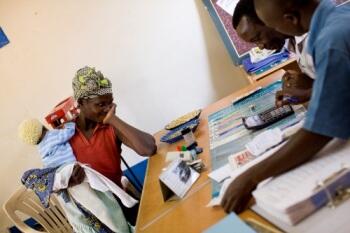Why fair trade may not be the best way to help the poor
MR University continues its online course on Development Economics with the most recent entry being a video on "Does fair trade help?" Here it is argued that middle income countries benefit the most from fair trade and not the poorest countries as was previously assumed. Furthermore, benefits of the premium are largely captured by retailers, brands and coffee shops, not the farmers. They advise consumers who are "ethical" in outlook to buy the cheapest coffee in the supermarket and donate money saved from the fair trade price to a charity.
According to the video there are two issues to consider:
1. There are secondary consequences and unseen effects from fair trade
Higher prices from fair trade shifts demand to countries with wealthier producers and strong institutions. Most fair trade coffee comes from relatively rich developing countries like Mexico and Costa Rica. Costa Rica for example has a per capita income of USD11,000 p.a. By contrast, Ethiopia has a per capita income of USD800 p.a. and yet very little fair trade certified coffee is purchased from here. The question therefore is whether we would help the world's poorest by purchasing fair trade coffee from Costa Rica or non-certified quality coffee from Ethiopia?
Ugandan coffee farmer sells her coffee to local coffee buyer in Kasese: no fair trade premium but one for quality
Source: Glenna Gordon/ITC
2. Most powerful players in the supply chain capture the benefits (not the poor)
When new money comes into a supply chain (like premium prices for FT), the strongest players in the supply chain will benefit. These are usually those organizations that control prices paid to producers or which differentiate themselves most strongly, i.e. the retailers, brands and coffee shops. So, it is quite likely that the gains end up close to the consumer- which is one reason why shops like selling FT coffee.
Research needed
MR University points out that there is a lack of evidence about impacts of fair trade coffee - it would be good to see what new independent work is measuring its impacts. Perhaps one can start with a trip down to the supermarket to compare prices between fair trade and non-certified products.
The Adam Smith Institute raised similar concerns several years ago highlighting that a focus on improving quality was a better route for coffee farmers to increase incomes rather than getting fair trade certified.
Back to the main page of ITC environment blog.
You can also follow Alex on Twitter.




